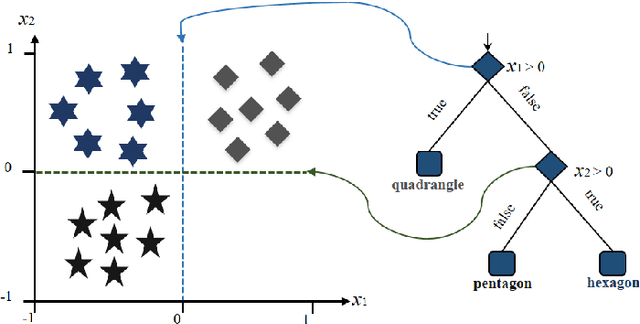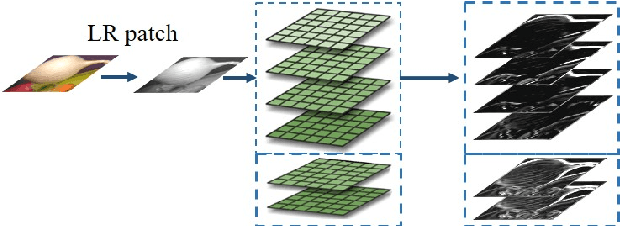Image Super-resolution via Feature-augmented Random Forest
Paper and Code
Dec 14, 2017



Recent random-forest (RF)-based image super-resolution approaches inherit some properties from dictionary-learning-based algorithms, but the effectiveness of the properties in RF is overlooked in the literature. In this paper, we present a novel feature-augmented random forest (FARF) for image super-resolution, where the conventional gradient-based features are augmented with gradient magnitudes and different feature recipes are formulated on different stages in an RF. The advantages of our method are that, firstly, the dictionary-learning-based features are enhanced by adding gradient magnitudes, based on the observation that the non-linear gradient magnitude are with highly discriminative property. Secondly, generalized locality-sensitive hashing (LSH) is used to replace principal component analysis (PCA) for feature dimensionality reduction and original high-dimensional features are employed, instead of the compressed ones, for the leaf-nodes' regressors, since regressors can benefit from higher dimensional features. This original-compressed coupled feature sets scheme unifies the unsupervised LSH evaluation on both image super-resolution and content-based image retrieval (CBIR). Finally, we present a generalized weighted ridge regression (GWRR) model for the leaf-nodes' regressors. Experiment results on several public benchmark datasets show that our FARF method can achieve an average gain of about 0.3 dB, compared to traditional RF-based methods. Furthermore, a fine-tuned FARF model can compare to or (in many cases) outperform some recent stateof-the-art deep-learning-based algorithms.
 Add to Chrome
Add to Chrome Add to Firefox
Add to Firefox Add to Edge
Add to Edge